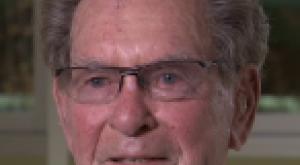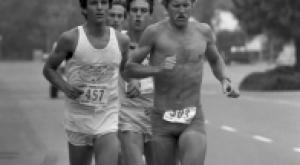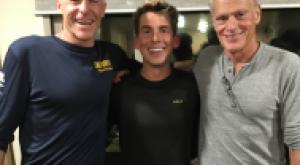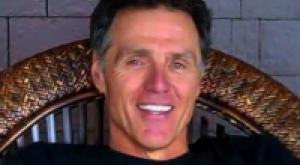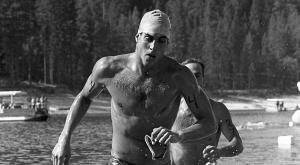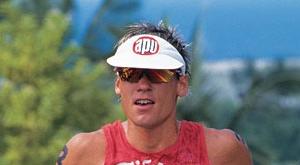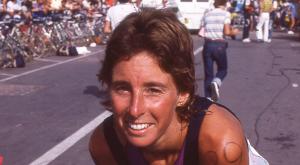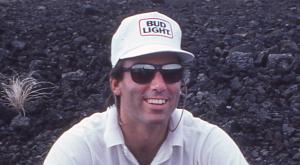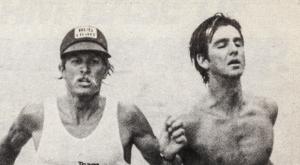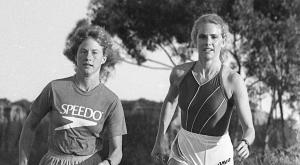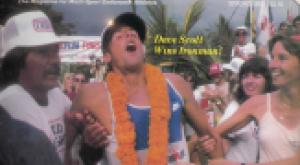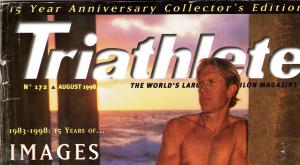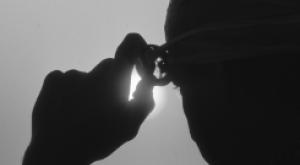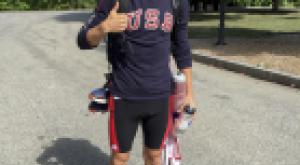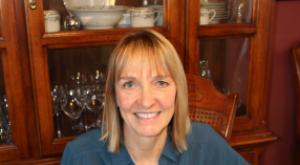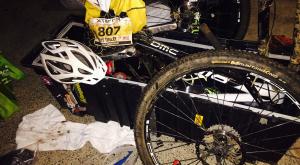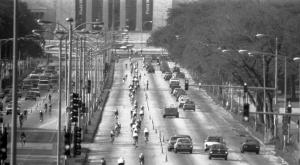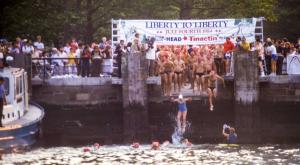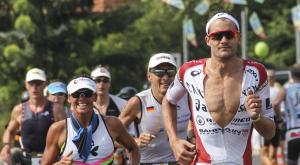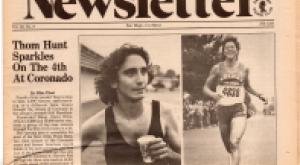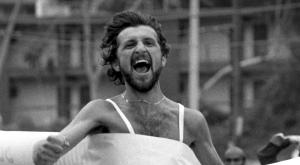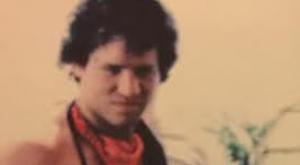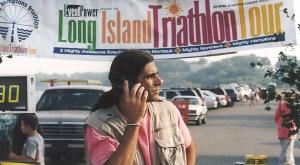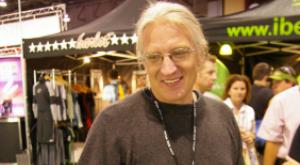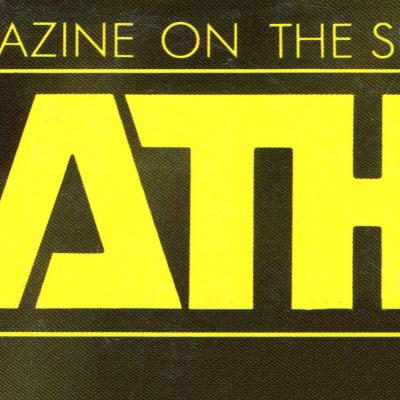In the fall of 1983, Tri-Athlete magazine (later Triathlete) founder, William R. Katovsky came to Ocean Beach, California and sat at my chipped dining room table. We had coffee and Raisin Bran and considered each other like two junkyard dogs. Katovsky was a pimply-faced political Jew from Berkeley who carried a sense of entitlement under his curly black hair. His glasses were held together with a paper clip. He'd come looking for a fight if not something, anything controversial to write about this emerging sport that had spring like a new Disneyland ride from the beaches of San Diego.
A few years earlier, William had set out to change the world and ended up riding his bike across America. Somewhere between Springfield and St. Charles in the great state of Missouri, Katovsky became intrigued with the Ironman. By the time he arrived home, he had a plan to complete the 1982 event and then write interesting stories about it, pieces with teeth that exhumed the human narratives.
But as he became more and more intrigued by the socio-psychological aspects of endurance sports, Katovsky realized there were precious few outlets for him to share his developing ideas. So, with a few grand borrowed from his father and his girlfriend, he started Tri-Athlete, an 11x14 newsprint fold-out filled with race results, interviews, and Katovsky's out philosophical spin. One of the more colorful contributing writers was R.P. Boye, a nom de plume for Katovsky' s alter ego and the name of his dog, Rocky Boy. How he landed in my kitchen is something of a larger tale but according to William it had something to do with my irreverent attitude when acting as a momentary awards ceremony host at the 1983 Chicago Triathlon. I don't remember being glibly offensive, but at the time it was certainly plausible.
Between sips of coffee and after opening salvos, Katovsky offered his best bait-and-switch interview tactics. He was fishing for something with teeth, a contentious quote to accompany a dead-serious cover image. But Katovsky's ploy was transparent enough. I liked him a lot and appreciated his clever chutzpah but was no friend to the sports media. Poor Bill was just caught in the crossfire of my early wars with the Multisport Industrial Complex. So, Katovsky, a student of Neo-Marxism, went back to Berkeley and decided the best division of labor he could apply to his publication was to hire me.
By early 1985, I had been assigned the back page of Tri-Athlete to pen a quip-ish Q & A, an irreverent response to the growing seriousness and narcissism of triathlon. At first I'd send Bill my articles on hand-written cocktail napkins and micro-cassettes finally graduating to yellow legal pads and fax. But soon enough I grew tired of creating my own silly questions just to respond in kind. That's when I jumped down the rabbit hole. Using a hard-boiled kind of self-observation, I argued that the things about triathlon that kept me up at night-- those awkward ideations and larger Whys—must make other people go...hmmmmm.
And for most of the 292 consecutive months I wrote "Tinley Talks" (an ungodly column title), it seemed to work. Or at least I had fooled my editors along with myself. Over those two and one half decades, the magazine would change names, ownership, and control several times. The sport would grow, mature, and stare down periods of lost self-identity. Triathlon would survive its own bonfire of the vanities, political infighting, and condo HOA management style. And I was fortunate to sit on the back fence and lob rocks and love at whatever person, place, or thing that was (un)deserving. It was good work.
At one point before I was unceremoniously removed, one of my favorite editors kindly asked that if I couldn't at least talk about triathlon, could I stay within the sports genre? Seems that I had taken the notion of editorial freedom a bit far, chasing down narratives on war, the economy, and physical culture run amok. Corporate ownership had wondered about the value of an aging triathlete's use of prime real estate to test new fiction on the Great Unwashed of Triville. So, in the spring of 2009, somebody else moved into my house. I have no regrets.
William R. Katovsky, for his part, remains a largely unheralded figure in triathlon's history, an iconoclast who operates his covert form of sport-related prescience from the blogging backroom of his Mill Valley apartment.
"Tinley," he is apt to claim, "triathlon remains in the netherworld between hard bodies and soft minds."
Tri-History's First Look Back at TT: "Thirty Three and Change" (Triathlete, March 2010)
I'd thought a lot about the 1983 Ironman; lots of what-ifs and what-abouts and for the briefest of moments—self-flagellation. I'd caved. Dave had plowed my head with his gutsy performance. I'd thought that I had been the fitter athlete on the day but he had used all of his resources; enough to finish 33 seconds in front. And as my retrospective column argues (PDF link below), it might as well have been 33 years.
I now feel privileged to have fought that battle with Dave and then for a period, with myself. For me, it was more fulfilling than even 1989 when Dave and Mark did that tango for all to see and dissect. In 1983, well before the ubiquitous, strategy-changing, camera caravan, it was just he and I, alone on the Queen K, a handful of family and friends and our concerns of each other.

